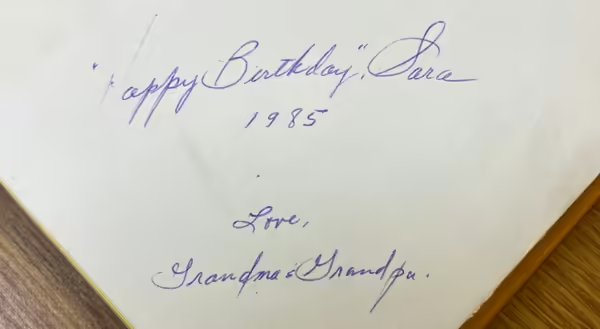
My office calendar this year has a special feature – a holiday to celebrate every day. That is 365 (or 366 in a Leap Year) days of celebration. Some holidays are familiar, such as Memorial Day, Labor Day, and Thanksgiving. Others are more obscure. Did you know that June 10 is National Ballpoint Pen Day?
While I’ve never thought about celebrating a pen or this special day in 1943 when brothers Laszlo and Gyorgy Biro filed their patent for what has become a common writing instrument, the existence of this holiday got me thinking about how this overlooked invention has touched our lives in subtle, yet important ways.
Writing and the Brain
Not only does writing help us to express ourselves through stories and letters, but the physical act of writing can also affect our brain function.
In various studies conducted on the topic of writing by hand vs typing, research supports that increased activity in various parts of the brain occurs when writing by hand as opposed to typing. According to Van der Meer and Van der Weel, it was concluded that “handwriting movements have a beneficial impact on the brain’s connectivity patterns related to learning and remembering. Utilizing a keyboard did not support the activation of the brain connectivity patterns.”
So you might want to think about it this way – while using a keyboard or typing messages, notes, or reminders on your device may be efficient, it may not be the most helpful choice if you are concerned with learning, remembering, and firing up various parts of your brain.
Keep Those (Brain and Social) Connections Alive
Beyond the impact on brain function, writing by hand can be an impactful way to stay connected to others as this is important for our social and emotional health.
Have you ever felt the joy of going to the mailbox and seeing a letter or card addressed to you? It’s not a bill or advertisement solicitation imploring you to buy something or vote for someone. It’s a letter or card with a handwritten message on the inside. These special deliveries may bring you news from someone you haven’t talked to in a while, or perhaps some sentiments to let you know that you are being thought of by another person. Either way, such correspondence can support a relationship. While texts and emails are great ways to communicate, handwritten correspondence can hit differently.
I have a cookbook in my house that was given to me by my paternal grandmother nearly 40 years ago. I haven’t kept it around all of these years because of the recipes. In fact, I rarely if ever use cookbooks. This cookbook is in my personal library because of the handwritten message left in the front. The accompanying picture with this post is of this handwritten message. Holding on to something with my grandma's actual signature has kept a special part of her memory alive for me.
What’s the Point?
Did Laszlo and Gyorgy understand how much their invention would assist people’s learning, retention, as well as support relationships? I doubt it. But in today’s technologically focused day, l propose a challenge. Think of 3 people and write them a letter or card. You may write to let that person know how something that they did made a difference in your life. Perhaps you may write out a few lines of encouragement to brighten their day and let them know they are in your thoughts. Or, take a moment and write down a quick story from your lived experience. A bike riding escapade from a summer in your youth. An experience showing a project at the 4-H fair. Meeting that special person for the first time. I believe that we all have a story to tell. Need some inspiration? Consider attending a life stories writing workshop.
Whether it’s writing down some notes or sending a message to someone that you care about, put that pen to paper to use and make connections in your brain and with someone that you care about.
Make every day a ballpoint pen day! Or pencil day, or gel pen day, or crayon day. You get it.
Just put the writing utensil of your choice to paper and make your brain happy.
Sources:
Writing by hand may increase brain connectivity more than typing on a keyboard
Three Ways That Handwriting with A Pen Positively Affects Your Brain